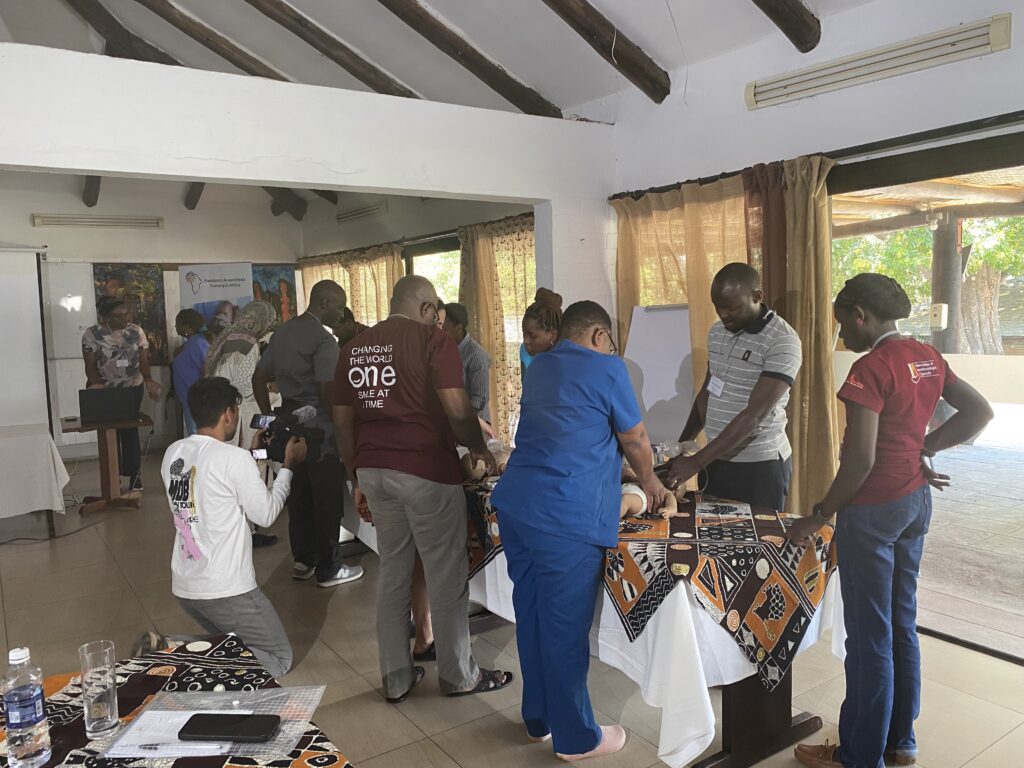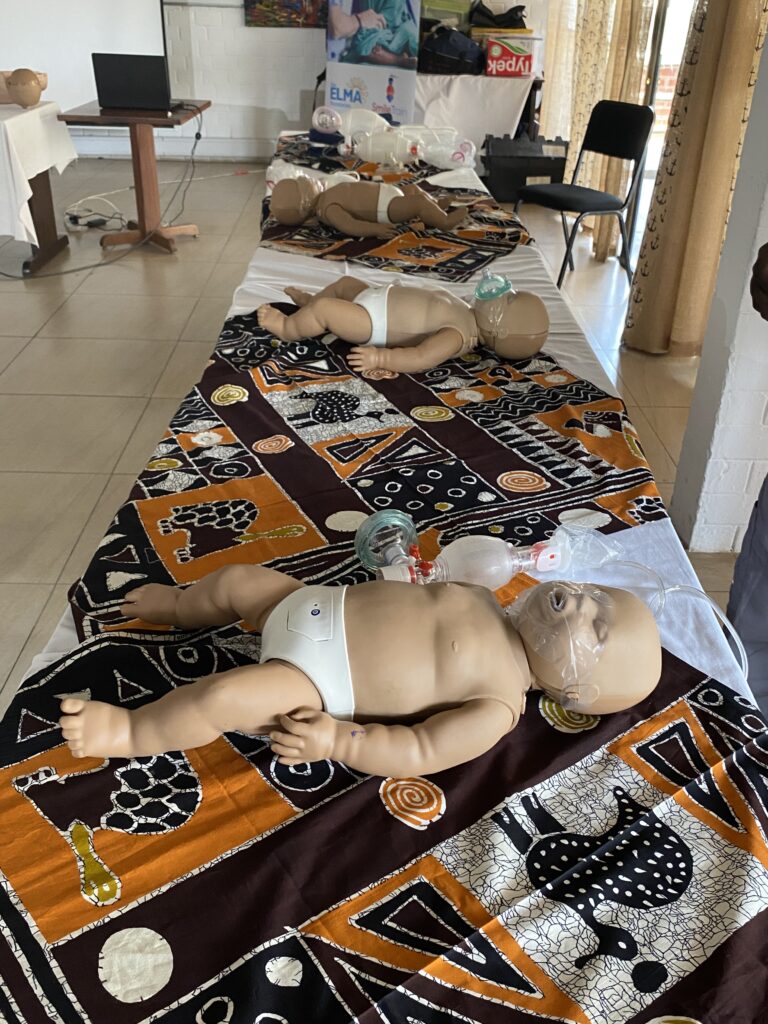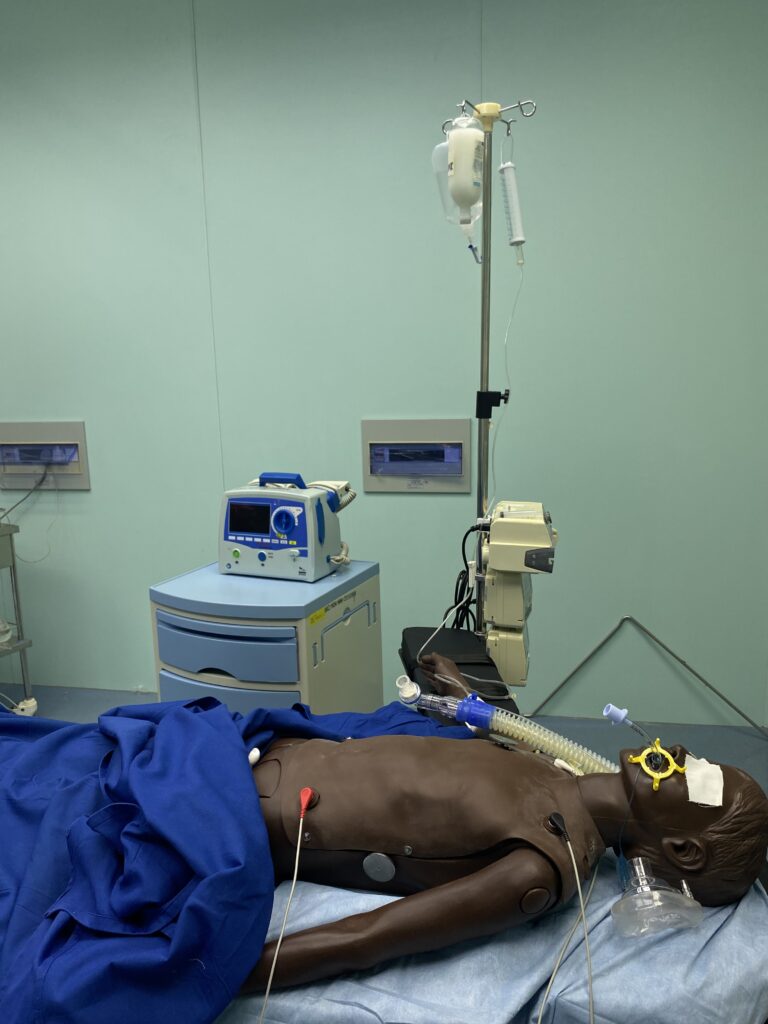The University of Nairobi paediatric anaesthesia fellow discusses his experience at the Paediatric Anaesthesia Training in Africa (PATA) bootcamp in Zambia
Can you please introduce yourself?
My name is Amos Zacharia, from United Republic of Tanzania. I have worked as an anaesthesiologist since 2019, recently I got the opportunity to start a paediatric anaesthesia fellowship. I’m currently at the fellowship bootcamp, which is an induction before I begin my year-long fellowship at the University of Nairobi.

Why did you choose anaesthesiology as a career?
I did my undergraduate training in Tanzania – I trained between 2008 to 2013. I chatted to a lecturer in the department of anaesthesia during my third year and felt inspired. But the real decision came later on, when I was posted to do an internship for a hospital in the southern part of Tanzania.
In that hospital, there was only one anaesthesiologist. One day he came in the operating room and he asked us three general practitioners, ‘would anyone in this room want to become an anaesthesiologist?’ And I said yes. So later on, he called us in his office and explained the importance and need for anaesthesiologists, who were in huge demand in the country – there were only around 30 at the time. We were convinced.
Why did you specialise in paediatric anaesthesiology?
The decision to become a paediatric anaesthesiologist came from the internal motive and external motivation – I remember when I was doing my residency in 2017, WFSA had started doing SAFE courses and our teachers had started engaging in other regions, doing SAFE Obstetrics and Paediatrics. I trained on SAFE, in remote locations, for almost three years – that made me sure I was going to become a paediatric anaesthesiologist.
How did the SAFE courses inspire you?
Through SAFE, we could get faculty from outside Tanzania, so from the UK, Uganda and Kenya, to help us train non-specialist anaesthetists. It made me see the beauty of paediatric and obstetric anaesthesia. After doing several SAFE training courses in paediatric anaesthesia, I could see first-hand the huge deficiency of paediatric anaesthesiologists in Tanzania – I think, in a country of 60 million, we only have one paediatric anaesthesiologist. Who’s going to do this work, with paediatric surgeries being done everyday?
You’re at the beginning of your fellowship – what do you hope the fellowship will provide?
A main challenge is doing the same thing as an anaesthesiologist, but it’s packaged in a smaller body. To become really good at paediatric anaesthesia, it requires skills and knowledge. It also requires – as I’ve already seen from this bootcamp – non-technical skills just as much. How can I behave as a leader? How can I manage my team, or formulate good decision-making during a crisis? How do I communicate? These skills are so important, especially when dealing with patients who cannot communicate.
How has the bootcamp been going?
All the anaesthesiologists have come together from different countries. I’ve learned that the way we’re trained are very different – sharing our experiences has been a huge advantage. We’ve been having free discussions where we talk about how we’ve been providing anaesthesia. And having this group of faculty, some of whom have trained for over 20 years, they’ve given us their own stories, the challenges and difficulties that we can learn from.
What have been stand-out elements of the bootcamp?
I think I’m lucky. Basic life support isn’t necessarily given as part of training in each country, but thanks to Smile Train I’m certified as a provider and instructor for PALS [paediatric advanced life support] already, so it’s an advantage to come here as an instructor. It was great to cover it again.




A stand out for me was learning MEPA (managing emergencies in paediatric anaesthesia) – that was new to me. I haven’t had huge experience with simulation-type training, and it’s been very exciting. You go into the OR, and it’s like dealing with a paediatric patient, you feel your adrenaline, wanting to rescue the life of a patient, but you’re in an environment that is much safer. The discussion that follows the scenario is very important, it was a perfect practical way of learning.



What scenario did you have?
I had a scenario that involved a paediatric patient after tonsillectomy – the patient was in the recovery room. But in the simulation, the surgeon and the operating team forgot to remove the a throat pack. Now, this patient was in distress with abnormal breathing. I struggled initially. We were told how to approach an emergency – to shout for help, put the laryngoscope in and look deep into the oral cavity. I found the forgotten pack, and the scenario ended there. Afterwards, we discussed the best course of action and the positives and negatives of how we executed our scenario.
The faculty emphasised the need to be optimistic, to have positive direction, but be prepared to face some challenges. In these two weeks, our faculty have tried to summarise everything we’ll be covering in the next year. Now it’s time for us to go and dig deep and work hands-on.

What are your plans following the fellowship?
I have one main objective – to disseminate the information I’ve learned. There are two Tanzanians on this fellowship. In a country of 60 million, we have 96 anaesthesiologists in the country. It’s going to be impossible to train every anaesthesiologist to become a paediatric anaesthesiologist – so I want to work with my colleagues in the region to help disseminate essential skills and knowledge. That’s the only way we can cover and ensure paediatric surgeries are done in safe hands.
Is there anything else you’d like to add?
I want to thank my parents – they motivated me. My parents never went to school, even grade one. My father pushed us every day to make sure we go to school. My brother paid for my school from grade one to university – these are people I wish I could give a return to, I can’t thank them more.
The WFSA offers its Fellowships to anaesthesiologists from low and middle-income countries to increase their skillset and become leaders for anaesthesia once they return to their home countries. Upcoming WFSA fellowships and how to apply






